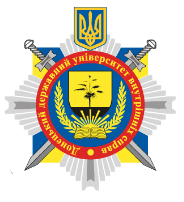HISTORICAL AND LEGAL OUTLINE OF MODERN POLICE VISIONS
DOI:
https://doi.org/10.32366/2709-9261-2022-3-1-16-23Keywords:
early modernism; police; public administration; cameralism; policing; disciplinary society; rule of law.Abstract
The starting theories of the police, its doctrinal meanings, functions, spheres of activity and place in the formation of a disciplinary society in the theories of early modern thinkers are analyzed. Political and managerial works of modern thinkers existed within the religious worldview and were created to give absolutist sovereigns – semi-feudal rulers an idea of the mechanisms and means of creating a new order, a better rational and disciplinary socio-political formation, which provided conditions for Christian salvation – happiness in earth. life. At the end of the XVII century. on the theoretical basis of the eudemonist state, the concept of the welfare state was developed, which was later defined in the term "welfare state". The works of modern police officers are hypertrophied, an attempt to cover the full range of socio-economic and political-managerial spheres of society. To achieve this goal required a centralized, branched body of state influence, called the "police". In the future, a separate discipline was formed – "science of the police" (German Polizeiwissenschaft). In the view of modern scholars, the new state was seen as a police institution that carefully monitors its subjects, infinitely interferes in their daily lives, in order to form social discipline. That is, the concepts of early modern authors not only did not share the concept of state and police, but determined the primacy of the institution of the police in the administrative bureaucratic activities of the absolutist state. Thus, the police received "comprehensive" functions that had utopian-universal features. In her own field of vision were to be almost all spheres of socio-economic life of society, social morality and material level of subjects. Utopian-universal qualities of the police and its unlimited powers form the basis for the approval of the modern idea of the "police state". At the beginning of the XIX century modern concept of the police, its meaning began to change. This took place against the historical background of the destruction of absolute monarchies, the establishment of the first liberal democracies, global industrialization and urbanization, and so on. In the theoretical sense, the police change in meaning under the influence of the theories of "rule of law" (R. Mole) and "welfare state" (L. Stein). The halo of "comprehensiveness" is removed from the police and its functions are distributed to other state and bureaucratic bodies.
References
Старилов Ю. Н. Административное право : в 2 частях. Часть 1 : История, наука, предмет, нормы. Изд-во Воронежского университета, 1998. 392 c.
Дубінчак В. М. Правоохоронна діяльність: сутність, об’єкти, засоби забезпечення (теоретико-правовий аспект) : автореферат дис. … канд. юрид. наук. К. : 2010. URL: http://www.irbis-nbuv.gov.ua/cgi-bin/irbis64r_81/cgiirbis (дата звернення: 20.11.2021).
Пасько Я. І. Соціальна держава і громадянське суспільство: співпраці versus протистояння : монографія. К. : ПАРАПАН, 2008. 272 с.
Omar Guerrero-Orozco. The great masters of public administration:von Justi, Von Stein, Bonnin and González. Universidad Nacional Autónoma de México. Translated by Goerganne Weller. Revised by author. 2014. URL: https://revistas.uv.cl/index.php/rgp/article/view/2235/2187 (дата звернення: 21.11.2021).
Кучма В. В. Выполнение полицейских функций во Франции периода феодализма (до XVII в.). Античная древность и средние века. Выпуск 11. Свердловск, 1975. С. 155–167. URL: https://elar.urfu.ru/handle/10995/2265 (дата звернення: 19.11.2021).
Grzegorz Smyk, hab. Ph.D., University Professor. Police science as a source of modern administrative sciences. Department of History of State and Law, Faculty of Law and Administrationat the Maria Curie-Skłodowska University in Lublin. URL: https://www.tkp.edu.pl/wp-content/uploads/2020/03/TKP_XII_2019_nr2_smyk.pdf (дата звернення: 20.11.2021).
Мещеряков А. М., Ванюшин Я. Л. Полиция зарубежных стран (основы организации) : учебное пособие. Челябинск, 2005. 95 с.
Расков Д. Е. Камерализм книг: переводы Юсти в России XVIII века. Terra Economicus. 2019. № 17 (4). С. 62–79. URL: http://ecsocman.hse.ru/data/2020/01 (дата звернення: 21.11.2021).
Малиновская В. М. Генезис западноевропейской науки административного права. Вопросы русского и интернационального права. Том 7. № 5A. 2017. C. 27–36. URL: http://publishing-vak.ru/file/archive-law-2017-5/3-malinovskaya.pdf (дата звернення: 25.11.2021).
Дорская А. А. Соотношение полицейского (административного) и церковного права в Российской империи. Известия Российского государственного педагогического университета им. А. И. Герцена. Сер. «Право». 2008. № 72. С. 175–184.
Кулик О., Сухоставська Х. Перспективи розвитку правової держави в Україні / Київський університет права. К. : 2011. URL: https://uchika.in.ua/polojennya-pro-pravovomu-derjavu-ideya-ponyattya-oznaki-princi.html (дата звернення: 24.11.2021).





